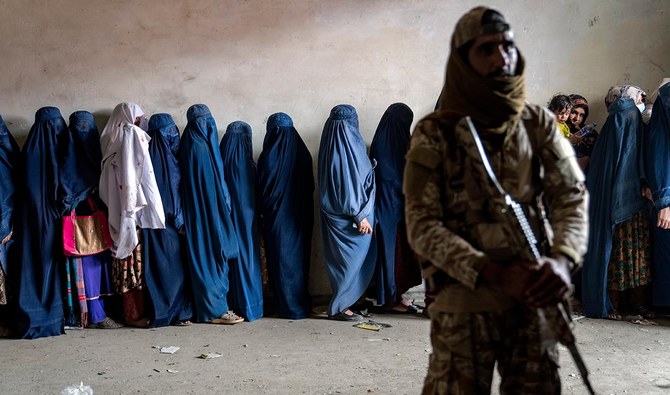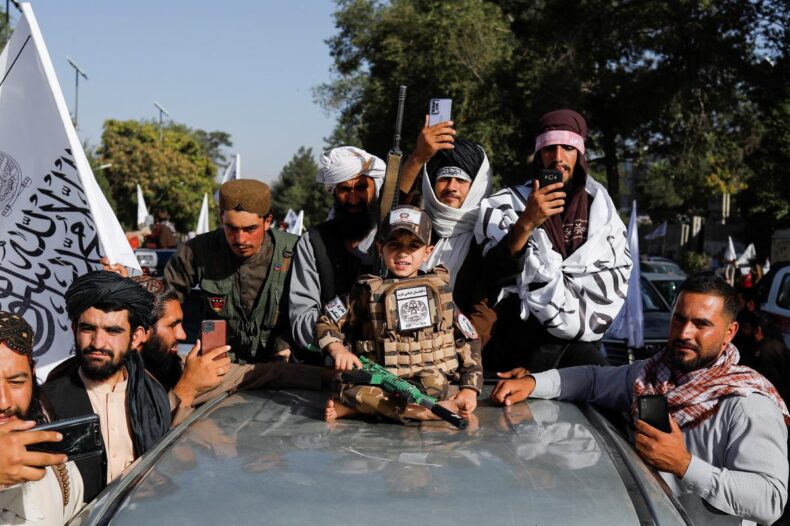On Tuesday, Taliban rulers celebrated the second anniversary of their return to power in Afghanistan. Taking over Kabul on 15th August 2021, after the withdrawal of US troops, the Taliban set up their de facto government in the country. No country in the world has officially recognized the Taliban’s government yet.
Taliban’s celebrations:
The Afghan Taliban celebrated on 15th August what it calls the establishment of security in the county under an “Islamic System”. The spokesperson for the Taliban, Zabihullah Mujahid, thanked Almighty Allah and congratulated the mujahid (holy warriors) in a statement on Tuesday.
Amidst tight security, convoys of Taliban members carrying weapons flocked at Massoud Square near the abandoned US embassy building.
Other men blared anthems as street vendors sold the movement’s white flag with the Islamic declaration of faith.
Supporters of the Taliban in Herat in western Afghanistan chanted slogans of death to Westerners, Europeans, and Americans. In Kandahar, the Taliban movement’s birthplace where their reclusive supreme leader Hibatullah Akhunzada exercises absolute power, a military parade was cancelled. According to provincial officials, Akhunzada himself cancelled the procession to avoid upsetting the public.

Women’s issues: Major events since the takeover
The Taliban, which claims to uphold human rights in accordance with its interpretation of Islamic law, has also prohibited the majority of Afghan women from working for humanitarian organizations, shut down beauty parlours, prohibited women from entering parks, and restricted their ability to travel when there is no male guardian present.
Girls beyond the age of 12 have been largely barred from attending classes. The ban is a significant barrier for many Western governments trying to formally recognize the Taliban authority.
Nevertheless, the majority of Muslim-dominated nations and Islamic scholars reject the Taliban’s position on women’s rights. Some Taliban commanders support women’s education, with one senior leader asserting that Islam gives women the right to both education and employment.
Taliban’s hopes for international recognition: an impossible dream?
The Taliban expects progress to lead to international recognition, the easing of sanctions, and the release of almost $7 billion in central bank assets that were frozen at the US Federal Reserve Bank of New York in 2021 when the Taliban took control.
There are indications that the Taliban’s ban on drug cultivation has significantly decreased poppy production in what was once the world’s largest opium producer.
However, a group of UN experts criticised the Taliban’s promises of a milder rule than during its first term in power from 1996 to 2001 on Monday.
The facts on the ground have revealed an accelerated, systematic, and all-encompassing system of segregation, marginalization, and persecution- the experts said in a statement- despite assurances from the Taliban de facto authorities that any restrictions, particularly in terms of access to education, would be temporary.
The de facto Afghan government’s words and actions have been increasingly at odds, and the notion of a “reformed” Taliban has been disproved, they added.












